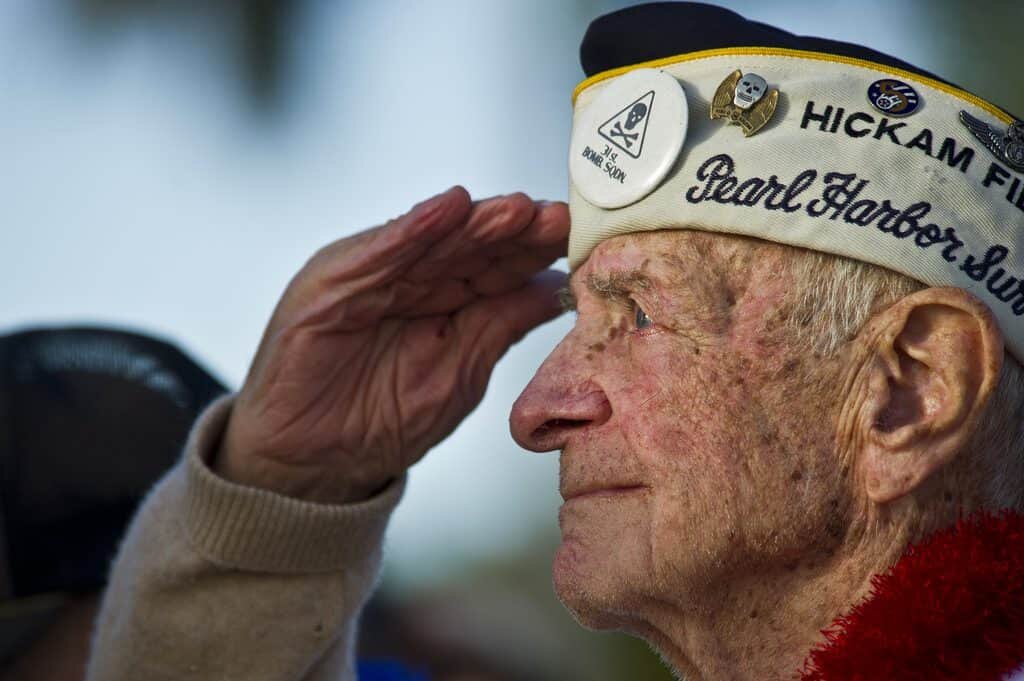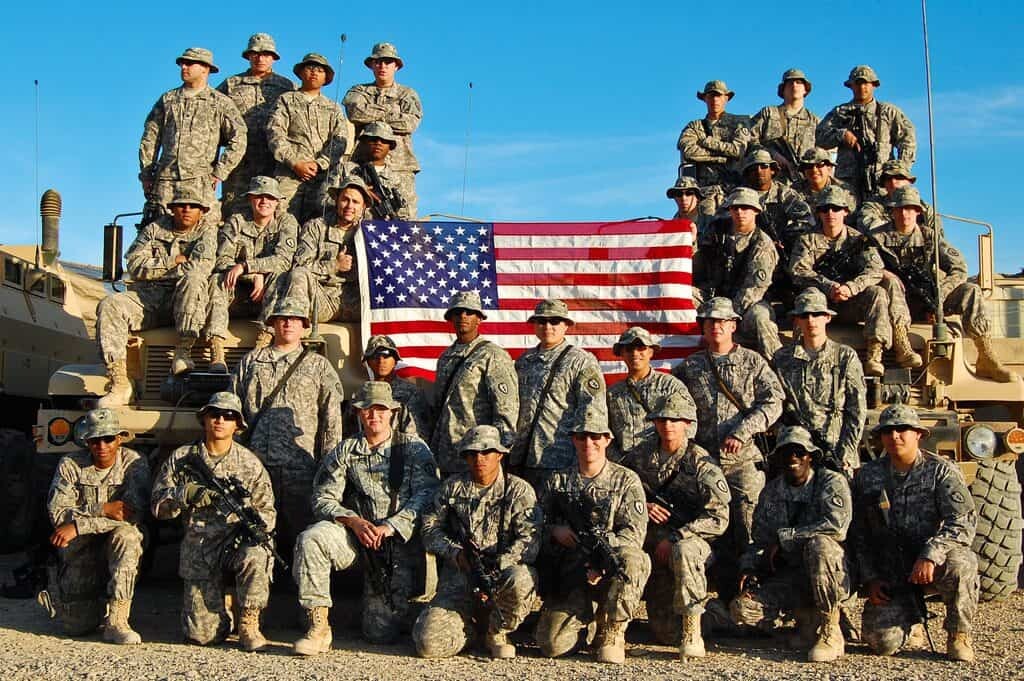Veterans Day is celebrated on November 11 each year. On this day we honor the men and women who proudly served in the U.S. military and who placed their patriotism and love for America above themselves. These are the heroes of our great country – many of them unsung. But what makes up this group of heroes … every one of them in his or her own way, big or small? What are the traits of a hero?

A hero is a person distinguished by exceptional courage and nobility and strength.
Whether a person enlisted in the military eager to serve and fight or whether a person was recruited, the qualities of the hero will emerge in varying levels for each individual as a result of inborn traits and military training. Whatever traits of a hero the individual already possessed at the time of entry into the military will be honed and given the environment to flourish – at least to some extent.
There is no question that opportunity plays a role in the soldier’s ability to demonstrate heroic traits; the combat soldier will be exposed to different opportunities than the I.T. specialist, however, this in no way diminishes the importance and value of the less demonstrable characteristics of an individual in service. Arguably, not all heroes are Veterans, but all Veterans are heroes to some extent. Here are some of the traits our service members demonstrate in the military.
Loyalty
The ability to work well with others and form bonds determines the level of loyalty a person will exhibit. In the military, when a group trains, works, and fights for a common goal, often the soldier will develop a deep sense of selflessness. That quality will lead a person to act not for himself but for the sake of others, to protect, fight and serve for the common objective, and to do what is necessary, rather than what may be personally desired.
With loyalty, a sense of commitment and cohesion to one’s group becomes even more important than ideology. The “Band of Brothers” effect is very powerful. The sense of belonging and acting for their comrades becomes paramount to whatever it is they are fighting for. The last thing the soldier wants, in this case, is to let down his comrades. There have been times in history when this phenomenon has proven dangerous. The Nazi movement and violent gangs are examples. However, when this degree of loyalty exists for all the right reasons and ideas, cohesive units can accomplish great things.
Leadership
Some leaders are born, while others are made. Military service and training have the reputation of making leaders. It will hone preexisting leadership qualities and usually provide an opportunity, big or small, to utilize those qualities.
Although not all soldiers serve in leadership roles, the qualities of leadership are certainly required in each and every position at times. These qualities are self-discipline, confidence, the ability to take initiative and to lead by example. Other leadership qualities include ”…a strong desire to achieve, a desire to influence others for the common good, a high energy level, persistence, competence, good interpersonal skills, self-confidence, decisiveness, a high-stress tolerance, and high flexibility” (The Psychology of Heroes).
The leader of a unit has the ability to command respect by exemplifying the behaviors and traits she or he wishes to see in others. However, the most successful unit leaders not only serve as examples to others. They also serve as parent figures who encourage, demonstrate, guide, mold, and discipline.
You May Also Like: Psychology of Tyrants: History and Observation
In times of combat war, the loss of a leader could be devastating to the unit. One WWII soldier said, “To all of us, the loss of our company commander was like losing a parent” (The Psychology of Heroes).
Courage
Heroes demonstrate the ability to take risks. They show courage. And although not all Veterans are colorfully decorated, they all have demonstrated these traits in some way during their service to our country. Perhaps they fought on the front line. Many of our soldiers have never had acknowledgment for their small acts of bravery. They may have served overseas in volatile areas or had dangerous or stressful jobs even in supportive roles. The changes are high that at some point in service, the Veteran demonstrated courage.
The ability to work and act for the common good regardless of fear, inadequacies, or lack of confidence is what sets apart the courageous individual. Risk-takers aren’t necessarily fearless or full of bravado. They are just able to act even in the face of fear. They are also not afraid to exhibit their skills. As a result, they often demonstrate leadership qualities, such as quick thinking or the ability to save a comrade. So risk-taking and leadership traits may work together. Most good leaders are also risk-takers who are willing to lead by example even in the face of intense or fearful situations.
The Unsung Traits of a Hero
This is not an inclusive list of all the traits of a hero but only serves as a starting point. Many of these characteristics overlap. Together, they reveal how the whole development of an individual is critical in determining the degree of heroism in a person. This includes the mental, physical, and even emotional states of a soldier. Surprisingly, the best leaders are often the most caring human beings. They care about their country, the cause, their unit, and about their subordinates. Oftentimes, they are selfless.

Our Veterans, by having served and given of themselves for this country, in wartime or not, have all demonstrated their loyalty, leadership, and courage. Some have attained medals for outstanding achievements and our hats go off to them. However, undoubtedly, all of our Veterans are the heroes of the United States of America. They’ve protected and fought for us, and they deserve our deepest respect and recognition.
Next Veterans Day, celebrate the way the United States Congress of 1926 initially intended for us to celebrate it, …”commemorated with thanksgiving and prayer and exercises designed to perpetuate peace through good will and mutual understanding between nations” (OPA).